
Congratulations! You have finally been invited to attend a job interview and you’re now looking for some tips to help you prepare and secure the job of your dreams.
Fortunately, you have come to the right place!
We have compiled below – in three different sections – our favourite Top 25 Tips to help you make the most of your interview. Follow these guidelines carefully and the job can be yours!
The three sections are:
- Preparation before the interview,
- What to do (or not to do!) during the interview, and;
- What to do after the interview.
Preparation before the interview
1. Know yourself and your Unique Selling Points (USPs)
A job interview, in a nutshell, is nothing more than a sales pitch to sell yourself and it is your final opportunity to convince the prospective employer to hire you.
The first thing you need to do is to know yourself and know your USPs.
This does not mean that you should go and embark on a long journey of self discovery to answer ancient-old philosophical questions such as “What is my purpose in life?”
Rather, ask yourself:
- What skills / abilities do I bring to the table?
- What work experience do I have?
- What am I really good at?
- How can I make a real and tangible difference to the company?
You need to be absolutely clear on the answers to the above-mentioned questions.
2. Research the company and the job role
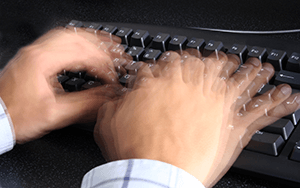
 Researching the company and all its aspects such as sector, management, customers, competitors and its mission and values, has many benefits. It enables you to:
Researching the company and all its aspects such as sector, management, customers, competitors and its mission and values, has many benefits. It enables you to:- Assess whether the company is the right place for you to work in;
- Tailor your interview answers to the needs of the company, and;
- Demonstrate that you have done your homework and that you are really interested in and enthusiastic about working in the company.
Part of this research should be focused on the job role advertised. Do not turn your head to the interviewer and say: “I didn’t realise that I was expected to know about this!”
3. Practice, practice, practice!
Winning an interview is a skill and an ability that you have to learn.
Believe it or not, an interview is not just a “meeting” where you just sit and answer a few questions! There is a lot involved such as; conveying the right messages through body language, having the correct sitting posture and maintaining good eye contact at all times.
“Practice makes perfect” is a famous saying that is applicable to all things, including job interviews.
Practice interviews are an excellent way to refine your skills.
Try it out: ask a friend or a family member to ask you a few questions and see how well you respond to those questions. You’ll be surprised to see the dramatic improvement you make after a few tries.
If you’re a student you could go to the careers centre at your college or university and the Careers advisors will be able to assist you with job interview tips, preparation and will also arrange mock interview sessions with you.
4. Anticipate questions and prepare sample answers for them
No matter who you are, what your profession is, which company you are going to work for or who is interviewing you; the basic questions of a traditional job interview will always be the same.
You can bet your life that you will be asked a mixture of the following common questions:
- Tell me about yourself… (This one is not really question but it is one of the most common things you’ll be asked to do at the start of interview!)
- Tell me about your previous or current job role…
- Why should we hire you?
- What skills and abilities do you have to do the job well?
- What motivates and drives you …
- Where do you see yourself in 1, 2, 5 years time?
You should write mock answers to these questions and practise them beforehand.
5. Prepare a list of questions
Remember, an interview is a two-way process.
You will have ample opportunity to ask questions yourself, particularly towards the end of an interview when the interviewer will ask you: “Do you have any questions?”
The not-so-good answer would be: “No… I don’t think so… You have answered all my questions.”
Instead make a list of intelligent questions to ask about the organisation (its future plans for example), your day-to-day activities, how performance will be measured, etc.
This will not only make you look eager and enthusiastic about the job but it will also save you the I-wish-I-had-asked-that-moment after the interview.
6. Dress to impress


Whether we like it or not, it’s a fact that people are – consciously or subconsciously – very judgemental and they’ll form an opinion about you within seconds of meeting you.
It is for this reason that you have to get your image right.
Here are some tips:
- Have a shower in the morning;
- Apply body spray and some minimal amount of aftershave/perfume;
- Wear your best suit and polished shoes;
- Brush and/or style your hair neatly.
7. Gather all your materials together
One of the worst things job seekers can do is coming empty-handed to an interview!
Remember: This is your only chance to sell yourself and make a good impression.
Make sure you bring with you:
- Two copies of your CV, Cover Letter and recommendation letters;
- Examples of past projects/works, and;
- A pen and a notepad.
8. Plan your journey [A to Z]
Whether the interview location is 1 mile or 20 miles away it is important that you properly plan your journey and do not rush things. Where is the place? How can I get there?
Tips:
- Print out any maps / routes that you may need;
- Prepare the navigation (if applicable) the night before;
- Ensure your phone is fully charged, and;
- Leave plenty of time for your journey and arrive at least half an hour early.
Remember: nothing could be worse in the world than being late for your interview!
9. Get plenty of sleep! *ZzZzzZZzzz*
It is very important that you are fully rested and are completely alert for your interview.
You cannot afford coming over as tired, exhausted or a right mess.
- Have a good sleep the night… it will work miracles for you!
10. Last but not least… Envision yourself acing the interview
Creative visualisation (or positive thinking) is a technique in which a person envisions himself successfully achieving a goal or task with great excellence.
This powerful mental-rehearsal technique first became famous when it was implemented by the Russians athletes in the 1980s Olympic Games with great success.
Hence you have to go to an interview with the following certainty:
- Today is my day to shine!
- I will absolutely impress the prospective employer and answer EVERY question perfectly!
- I will be made a job offer before the end of the day!


Believing in yourself and by following the tips mentioned in this article there is absolutely nothing standing between you and your dream job.
Phew, that is the first section done! Moving on to the next:
What do (or not to do!) during the interview
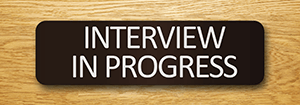

11. Maintain a good body posture and body language
Maintaining a good posture at all times is an important aspect of the interview process.
Your body language “says” a lot about you before you open your mouth to say your first few words.
Be respectful and do not be too casual or slouch…
On the other hand, you do not want to come over as a first prototype robot delivered straight from the manufacturer’s warehouse!
Best practice:
- Sit up straight;
- Lean slightly forward, and;
- Place your hands naturally in front of you on the table.
12. Maintain eye contact


They say the eyes are the windows to the soul and by looking into someone else’s you can tell their level of sincerity and truthfulness when they are speaking. Therefore, eye contact is a must… unless you don’t have a soul, of course.
There is nothing more annoying for an interviewer to try to communicate with a candidate whose eyes are bouncing all over the room except on his eyes!
How can they trust you if you do not look them in the eyes?
Are you hiding something?
Are you lying?
Maybe not, but that’s the impression you will be sending according to leading psychologists.
13. Think and pause before you answer
An interview is NOT a race where the candidate that answers the questions the quickest will get the job! Please, please, take your time when answering questions. It’s okay.
Deliberating and thinking before you speak is a positive trait of an intelligent, serious and considered individual. It also shows the prospective employer that you care a lot about answering the question correctly.
Remember:
Don’t overdo this tip by going into a mini, unresponsive coma after each question…!


14. Answer the questions (and nothing but the questions!)
One of the biggest mistakes that candidates make during the interview is not answering the question in a concise manner but rather go off-topic or drift off into irrelevant chatter.
For example: let us say I ask you the question: What is 2 + 2?
The answer that I am looking for is: “2 + 2 = 4”.
The answer that I am NOT looking for is: “Well… 2 is a number, so is the other 2… and in order to get the answer to the question I need these two numbers to be simplified and then added together. That means: 1 + 1 + 1 + 1 = 4.”
Similarly when the prospective employer asks you: “tell me about yourself…”
- Don’t go off topic
- Try to keep the answer as relevant, short and to the point as possible
15. Listen


Epictetus the Greek philosopher (55-135 AD) once said:
“We have two ears and one mouth so that we can listen twice as much as we speak.”
When it comes to a job interview you want to make double the effort at listening to the questions.
Here are some of the types of questions you might be asked:
- Simple, open and straightforward questions
- Difficult and complex questions
- Red-herring and trick questions (something that distracts from the relevant issue)
Attentively listening to the questions has a number of benefits:
- You are in a much better position to answer the questions;
- It demonstrates that you value what the interviewer has got to say, and;
- It shows that you have listening skills (an essential requirement in employment).
Remember: 2 ears. 1 mouth.
16. Be Visual!
The old-fashioned method is to just sit there and answer a bunch of questions.
But remember: an interview is your opportunity to sell yourself.
You need to use everything at your disposal to do so, not just the things you say.
- Show past works and projects undertaken;
- Show any significant awards or certificates, and;
- Demonstrate achievements (e.g. 120% increase in website traffic or 20% increase in sales) through impressive charts for maximum impact.
This will make YOUR interview more engaging, interesting and memorable compared to others.
17. Take notes
It is perfectly acceptable to bring a small notebook and pen with you to make some notes.
You could politely ask the person interviewing you: “Is it all right if I take some notes during the interview?”
We have yet to come across an interviewer who would object to this.
You could also use notes to remind you of some of the things to mention in case you forget them.
But, please, do not write a script and read it out to the interviewer! Unless you’re auditioning for a play. The purpose of the notes should be just to refresh your memory when you have a quick glance through them as you speak.
18. Don’t be afraid to ask


A job interview is a two-way process.
It is as much about them looking for a suitable candidate to hire as it is about you looking for a suitable company and position to work in.
For this reason, do not be afraid to ask questions or clarifications if you want to find out something or if something is on your mind.
Especially, at the end when the prospective employer will most likely ask you:
“So… do you have any questions?”
Top Tip: Prepare a list of questions beforehand and ask at the appropriate moment!
19. Be confident but not arrogant
Confidence is a good trait because it reassures the interviewer that you believe in yourself and your abilities and in turn they will have reason to believe that you can do the job.
There is, however, a fine line between confidence and arrogance.
You do not want to go into an interview, put your feet on the table in front of the interviewer and say: “I’m gonna make you an offer you can’t refuse.” [Famous line from The Godfather movie]
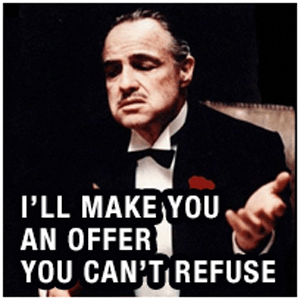

20. Be friendly but don’t overdo it!
Be polite, well-mannered and friendly through the interview but do not show any signs of desperation, neediness or cheesiness by taking it a few steps too far.
You are not there to keep try to keep the interviewer happy by manipulation.
The message that you want to send out is:
“Here I am, this is what I can do, I believe that I am the perfect candidate for the job and I can make a real difference. If you hire me; I’ll be glad. If you don’t; it’s okay because I am in high demand and I can always find a job somewhere else.”
Important: you do NOT want to say the above. You have to believe it – no matter how much you need/want this job you should never show any signs of weakness.
But… we’re not done yet! Check out below the final section of this article for some more tips:
What to do after the interview
Let’s say that you have just attended an interview and are now wondering: “Now what?”
21. Relax


The interview process is specifically designed to rigorously test a candidate’s competences and is quite a tough experience for most people. That is why the first thing that you need to do after an intense job interview is to take a small break and just relax.
The hardest part is over now, you’ve done it!
22. Send a Thank-you letter


After having collected your thoughts for a moment it is now time for you to send a quick Thank-you letter to the person/panel who interviewed you.
This needs to happen straight-away for it to have the best impact.
There are a number of benefits to sending a Thank-you letter:
- You thank the employer for making time to see you – this demonstrates good manners!
- You put yourself back on the mind of the prospective employer again;
- You iterate that you’re still 100% interested in the job position (a message which might have become diluted in the interview process itself), and;
- You can mention a few more selling points, strengths or comments which you had missed out or forgotten to mention during the interview.
23. Review your performance
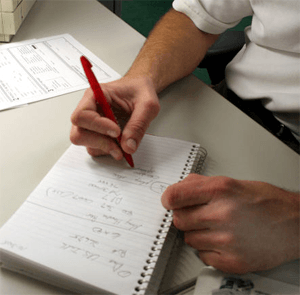
 Reviewing your performance is probably the most important thing you can do after an interview. Everything you have said and done – whether good or bad – will be fresh on your mind.
Reviewing your performance is probably the most important thing you can do after an interview. Everything you have said and done – whether good or bad – will be fresh on your mind.
Make some analytical notes on:
- What you had done right;
- What you had done wrong, incorrect or missed out, and;
- Any improvements for future interviews.
These notes will be very useful interview preparation material for any future interviews you might have and you’re bound to have dozens of them during the lifespan of your career.
24. Follow-up (but not too early!)
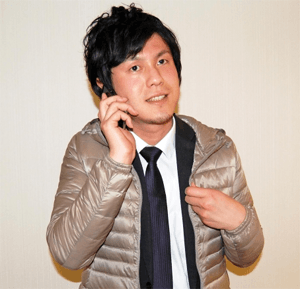

It is only natural that you would like to know as soon as possible (read: NOW!) whether you have been accepted or rejected for the job… but please don’t be tempted to call too early.
After an interview is finished it is a common practice for interviewers to indicate a time-frame in which they will get back to you with their final decision.
This could be on the same day, a few days from now or even in the next couple of weeks.
It is important that you remember what the interviewer told you.
If they have told you that they will get back to you in a week’s time you do not want to be calling in tomorrow to see whether they have made a decision yet! This shows a lack of listening skills, patience and common sense.
Remember: Don’t be a stalker or pester when following up – always stay professional!
25. Apply for other jobs (but don’t lose hope)
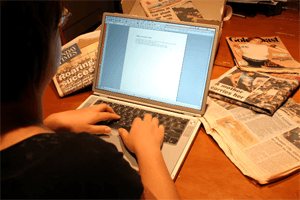

It is time to get out your laptop, newspapers and everything else you need to apply for jobs.
No matter how well you think you have done you cannot afford to sit there and wait without utilising your time properly.
Imagine for a minute that you wait a week and they decide to give the job to another candidate or they pull the vacancy from the market all together. What have you achieved? Nothing!
In the meantime, that one week was properly utilised by thousands of other job seekers and consequently they stand a much better chance of securing a job than you.
The only time you stop applying for other jobs is when the phone rings and the person who interviewed you says: “Congratulations [name], we would like to offer the job to you. Would you still be interested to accept our offer?”
It is only then that you know for certain that you have made it.
It is one of the best feelings in the world.
But until that happens you should keep applying and increase your chances of securing a job.
Ps: Don’t forget to pick up your phone when it rings…
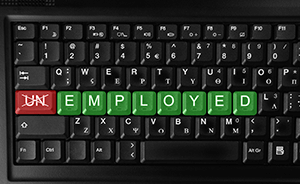
Good luck!

Post a Comment
شكرا لاضافة تعليقكم على هذه المشاركة